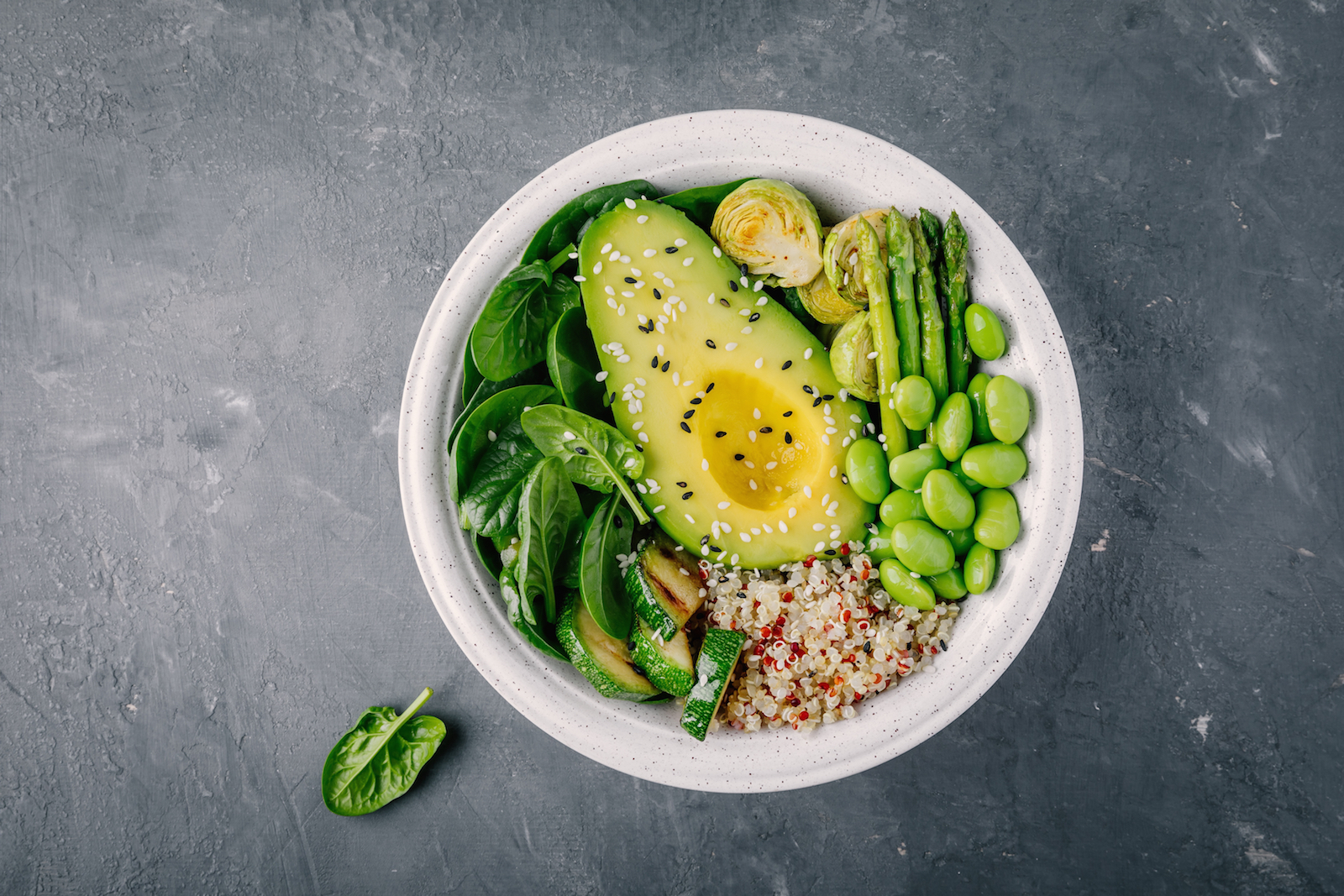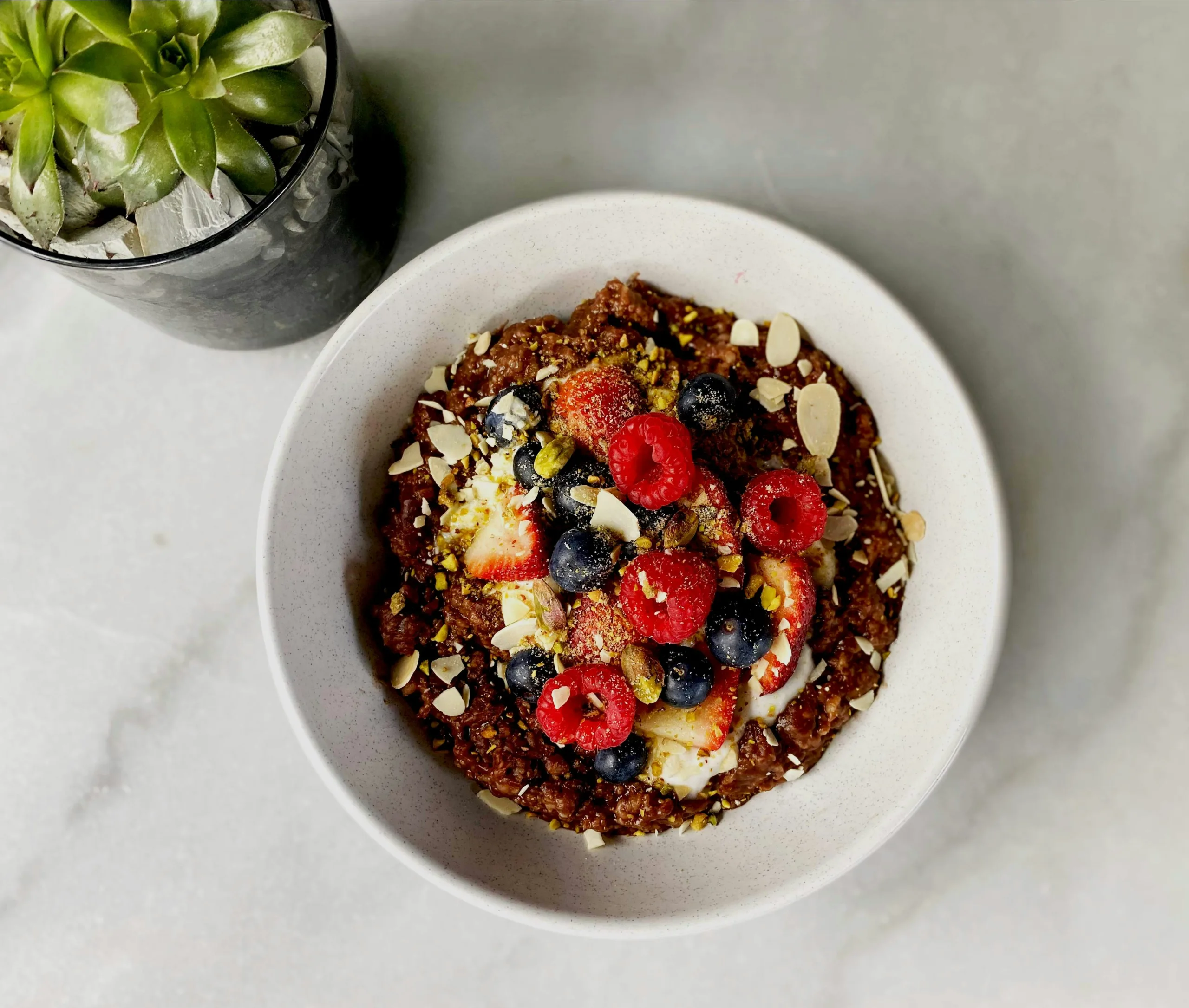Created in partnership with Setria Glutathione.
Ask Keri: What is glutathione, and should I be getting more in my diet?
Keri Says: You know about the power of antioxidants, and you’re likely aware of a few big ones that are important to get in your diet. Vitamin C, for example, found in red peppers and citrus, beta-carotene, found in orange foods like carrots and squash, and curcumin, found in trendy turmeric.
But while you may not have heard of glutathione, it’s actually a master antioxidant you definitely shouldn’t be ignoring. Here’s what you need to know.
What is Glutathione?
Glutathione is a “tripeptide” (a kind of melded molecule) made up of of the amino acids glutamate, cysteine, and glycine. Your body makes it on its own, and it’s present in every cell in the body.
Glutathione levels fluctuate throughout the day and can go down as a result of taxing situations, stress or poor diet. As you age, your body also produces less and less. Women between the ages of 60 and 80, for example, produce about half of the amount that women between 20 and 40 do.
Like other antioxidants, it plays a major role in defending your body against free radical damage, and it also has a special skill: it can reactivate other antioxidants like vitamins C and E, so your entire defense line-up gets stronger. Which brings us to…
The Health Benefits of Glutathione
As an antioxidant, glutathione binds to and neutralizes free radicals, which would otherwise cause inflammation in the body. This is good news for your immune system, as is the fact that glutathione boosts production of white blood cells (the most important immune system cells). There’s even evidence that it boosts the production of “natural killer” cells, which do what their name implies: they attach to pathogens and tumor cells and wipe ‘em out.
Glutathione is also most prominent in the liver and kidneys and helps the body with its natural detoxification processes, by intercepting and neutralizing toxins in the GI tract before they are absorbed.
And finally, studies have shown supplementation with glutathione in combination with citrulline can also support nitric oxide levels, which boosts circulation for better heart health and sports and fitness performance.

How to Get More Glutathione
Okay, so this is clearly an antioxidant you want more of in your life, and there are many foods that contain it. Asparagus, avocado, spinach, oranges, and strawberries are all good sources. However, there’s no guarantee you’re getting enough by eating those food occasionally. So, if you want to supplement, that’s where Quicksilver Scientific comes in.
You want to make sure you’re getting Quicksilver Scientific‘s version instead of the generic because first of all, it’s free of additives, artificial flavors, and preservatives. Most importantly, it’s manufactured using an innovative fermentation process that yields the highest purity product. Studies have shown increased blood levels of glutathione and increased body stores of accessible glutathione after Quicksilver Scientific’s supplementation.
(Photos: Shutterstock)





























